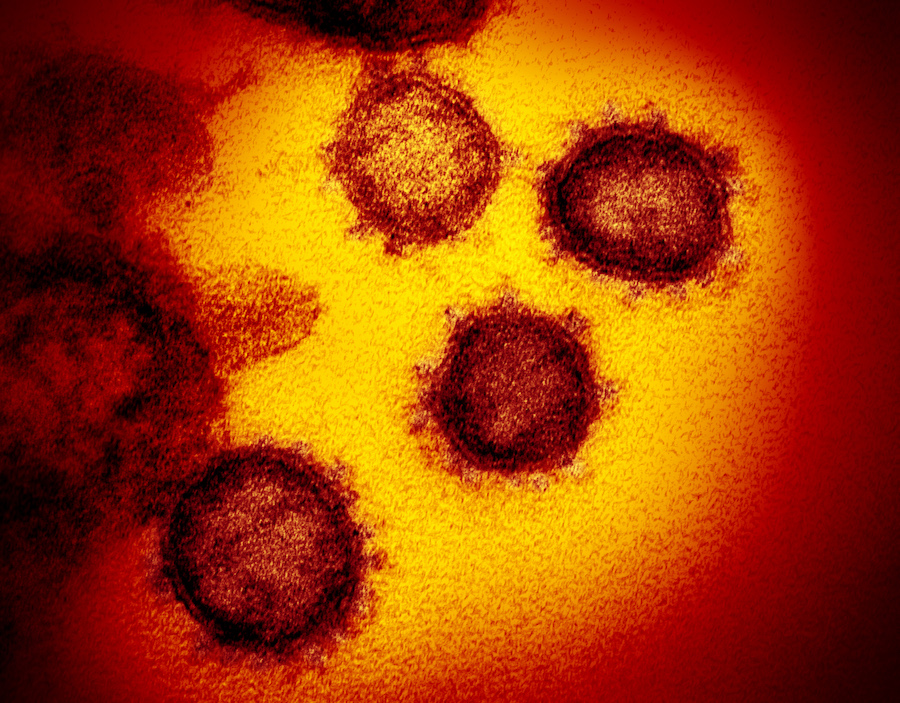First cases of COVID-19 acquired through community transmission reported in eastern Idaho
Published at | Updated at
The following is a news release from Eastern Idaho Public Health.
IDAHO FALLS — Eastern Idaho Public Health (EIPH) (which serves Bonneville, Clark, Custer, Fremont, Jefferson, Lemhi, Madison, and Teton counties), is reporting three new cases of COVID-19 in Madison County and are identifying two of the three cases were acquired through community transmission.
Community transmission means the spread of illness for which the source of the infection is unknown and cannot be connected to travel or close contact with a person who tested positive for COVID-19.
These three new cases bring the total COVID-19 case count in EIPH’s region to 13.
Case 1: Female in her 20s. This individual was not hospitalized and is self-isolating and recovering at home. This individual had close contact with a positive COVID-19 case from another state.
Case 2: Male in his 60s. This individual was not hospitalized and is self-isolating and recovering at home. Community transmission identified as this individual had no recent travel history or close contact with a positive COVID-19 case.
Case 3: Female in her 40s. This individual was not hospitalized and is self-isolating and recovering at home. Community transmission identified as this individual had no recent travel history or close contact with a positive COVID-19 case.
With all three cases, if other people are found to be exposed, health officials will contact them, provide them guidance, and will monitor them closely for symptoms. Additional case-specific information about these individuals is confidential and will not be released.
“As we have watched the progression of this pandemic across the nation and Idaho, we knew that at some point we would experience community transmission. This is where the Governor’s Stay Home order really comes into play to help us slow the spread. If you have not been taking the matter seriously, now is the time to start,” stated Geri Rackow, EIPH Director. “Staying home at the first sign of even the mildest of symptoms is going to help the disease from being spread to others.”
Due to limited testing supplies nationwide, testing for COVID-19 has been prioritized for specific populations. This, coupled with community transmission of COVID-19, makes it even more urgent than ever to follow the recommendations of public health which include:
- Following the Stay at Home order, which was announced by Governor Brad Little on Wednesday, March 25. A copy of the order can be found here: www.EIPH.Idaho.gov.
- Practicing social-distancing (maintaining at least 6 feet between individuals), avoiding crowds of any number, and eliminating all non-essential travel, as detailed in the order.
- Staying home when sick even if your symptoms are mild. A symptom monitoring checklist and Decision Tree was recently developed to help people and/or employers determine what they should do if they are experiencing symptoms of COVID-19 or have been primarily or secondarily exposed to a person with COVID-19 symptoms. A copy of these documents can be found here: www.EIPH.Idaho.gov. This monitoring tool can be used daily by everyone to assess their health during this pandemic.
- Covering your coughs and sneezes with a tissue, avoiding touching your eyes, nose, and mouth with unwashed hands, cleaning and disinfecting frequently touched objects and surfaces, washing hands often with soap and water for at least 20 seconds, using hand sanitizer, and avoiding close contact with people who are sick.
- Individuals at an increased risk of severe illness (older adults and people with underlying health conditions) should take extra precautions to avoid exposure to COVID-19. For questions, guidance, and information about COVID-19, please visit EIPH’s website at www.EIPH.Idaho.gov. You can also follow us on Facebook at @EIPH.Idaho.
We also have a hotline number that can be reached by calling 208-522-0310 or 855-533-3160 (toll free). The hotline is active Monday – Friday, 8:00 a.m. to 5:00 p.m. The Idaho Department of Health and Welfare has also started a statewide hotline. It can be reached by calling 888-330-3010, Monday – Friday, 8:00 a.m. to 5:00 p.m.


